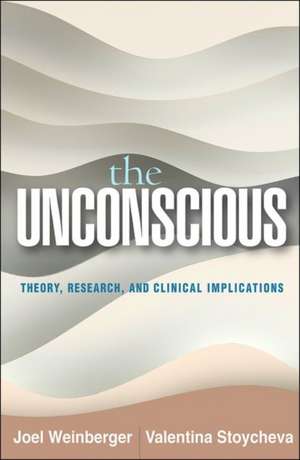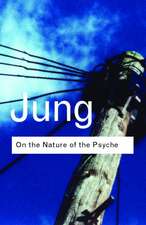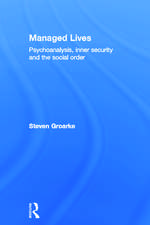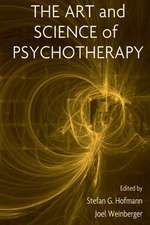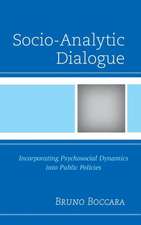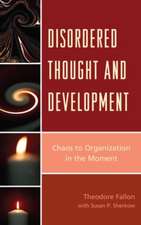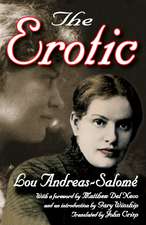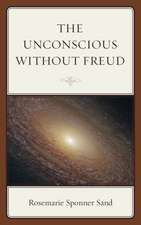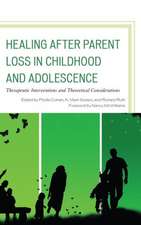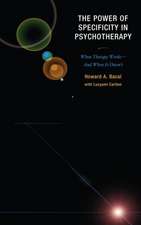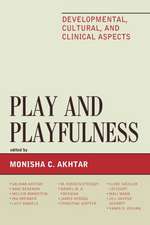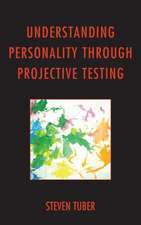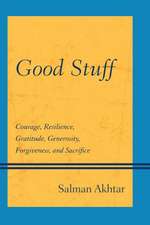The Unconscious
Autor Joel Weinberger, Valentina Stoychevaen Limba Engleză Hardback – 18 dec 2019
| Toate formatele și edițiile | Preț | Express |
|---|---|---|
| Paperback (1) | 274.94 lei 3-5 săpt. | +27.03 lei 6-12 zile |
| Guilford Publications – 10 iun 2021 | 274.94 lei 3-5 săpt. | +27.03 lei 6-12 zile |
| Hardback (1) | 503.66 lei 3-5 săpt. | +28.91 lei 6-12 zile |
| Guilford Publications – 18 dec 2019 | 503.66 lei 3-5 săpt. | +28.91 lei 6-12 zile |
Preț: 503.66 lei
Preț vechi: 547.46 lei
-8% Nou
96.38€ • 103.06$ • 80.36£
Carte disponibilă
Livrare economică 28 martie-11 aprilie
Livrare express 13-19 martie pentru 38.90 lei
Specificații
ISBN-10: 1462541054
Pagini: 396
Dimensiuni: 158 x 236 x 35 mm
Greutate: 0.68 kg
Editura: Guilford Publications
Descriere
Weaving together state-of-the-art research, theory, and clinical insights, this book provides a new understanding of the unconscious and its centrality in human functioning. The authors review heuristics, implicit memory, implicit learning, attribution theory, implicit motivation, automaticity, affective versus cognitive salience, embodied cognition, and clinical theories of unconscious functioning. They integrate this work with cognitive neuroscience views of the mind to create an empirically supported model of the unconscious. Arguing that widely used psychotherapies--including both psychodynamic and cognitive approaches--have not kept pace with current science, the book identifies promising directions for clinical practice.
Notă biografică
Valentina Stoycheva, PhD, is a staff psychologist at Northwell Health in Bay Shore, New York, where she works with military service members, veterans, and their families. She is also a cofounder and director of Stress and Trauma Evaluation and Psychological Services (STEPS), a group practice that focuses on the integrative treatment of trauma. Dr. Stoycheva has taught undergraduate- and graduate-level courses and has contributed to over a dozen publications and presentations in the fields of trauma, family dynamics, and the psychotherapy process. In 2018, she was named one of Adelphi University¿s 10 Under 10 outstanding young alumni.
Cuprins
I. Early History of the Unconscious
2. Philosophical Precursors
3. Dynamic Psychiatry and Early Academic Psychology
4. Psychoanalysis
II. Empirical Approaches to the Unconscious
5. The Beginnings of Experimental Work on Unconscious Processes
6. Unconscious Processes Move from Outcast to Mainstream
7. Empirical Tests of Unconscious Phenomena: The Effects of Subliminal Exposure
8. Attention Models Bring the Unconscious to the Mainstream
9. Unconscious Processes: From Mainstream to Central Tenet
III. The Unconscious Rediscovered
10. The Normative Unconscious
11. Implicit Memory
12. Implicit Learning
13. Implicit Motivation
14. Automaticity
15. Attribution Theory
16. Affective Primacy
17. From Metaphor to Embodied Cognition
IV. Computational Neuroscience and the Unconscious
18. Computational Models of the Mind
19. Massive Modularity
20. Parallel Distributed Processing
21. From Exaptation to Neural Reuse
22. A Model of the Unconscious: Theory and Implications for Psychotherapy
Glossary
References
Index
Recenzii
"What an accomplishment! Just as the scientific community approaches consensus about the ubiquity and power of unconscious processes, Weinberger and Stoycheva provide a brilliant, generous, guided tour of that landscape. The authors explore and integrate knowledge about implicit mental processes that has emerged from different intellectual traditions. This readable book belongs not only in undergraduate and graduate courses in psychology and psychiatry, but also in the curricula of all postgraduate clinical training programs."--Nancy McWilliams, PhD, ABPP, Visiting Professor Emerita, Graduate School of Applied and Professional Psychology, Rutgers, The State University of New Jersey
"This impressive, authoritative book beautifully integrates the profound insights of Freudian psychology with cutting-edge research. If you have wondered about the powers and pitfalls of the human mind that lie outside of conscious, deliberate thinking, or if you are merely curious about the deep processes that produce the remarkable capacity of human thinking, this book is the place to start. It offers a thorough overview of scholarly work on the unconscious, but it goes beyond that to offer a new synthesis. This is a terrific resource for researchers, practitioners, students, and anyone else interested in the mysterious depths of the human mind."--Roy F. Baumeister, PhD, Department of Psychology, University of Queensland, Australia
"Weinberger is one of the world's leading experts on the unconscious mind. He has teamed with Stoycheva to produce a contemporary review that manages to be both sweeping in its scope and illuminating in its depth. Especially valuable is their integration of psychodynamic theory and other clinical models of unconscious thought and motivation with modern cognitive psychology research on implicit memory and implicit learning. This makes the book an ideal text for cognitive science courses on conscious and unconscious human information processing, providing a more complete and historical treatment than do most contemporary texts. Advanced clinical psychology courses, as well, would profit from the coverage of therapeutic approaches and the authors' appreciation that much can be learned about the human mind and human nature from the therapy setting, in addition to rigorous laboratory research. Because the authors worked hard to describe and cover the most recent research and theoretical developments, the coverage is fresh and up to date, ensuring this book will be a trusted and useful text and resource for decades to come."--John A. Bargh, PhD, James Rowland Angell Professor of Psychology, Yale University
"Weinberger and Stoycheva offer a remarkably thorough and scholarly review of the evidence on unconscious processes. Courses in academic research on affect and cognition are now a required element for PhD programs in clinical psychology, but many such courses are only peripherally relevant to clinical work. This book masterfully integrates the academic and the clinical in a way that suits the needs of both beginning graduate students and sophisticated clinicians and researchers. It is a major achievement--I learned a great deal from reading it."--Paul L. Wachtel, PhD, Distinguished Professor, Doctoral Program in Clinical Psychology, City College and the Graduate Center of the City University of New York-This impressive review of the history of the concept of the unconscious synthesizes current research from multiple fields. The authors propose a metatheory of unconscious processing as the basis for any clinical theory of psychotherapy….Not only has the concept of the unconscious returned, but the revitalized form it takes in this book will challenge the field anew as we continue to grapple with this paradigm shift: accepting the role of unconscious determinism in conscious life.--Psychiatry, 2/27/2023
